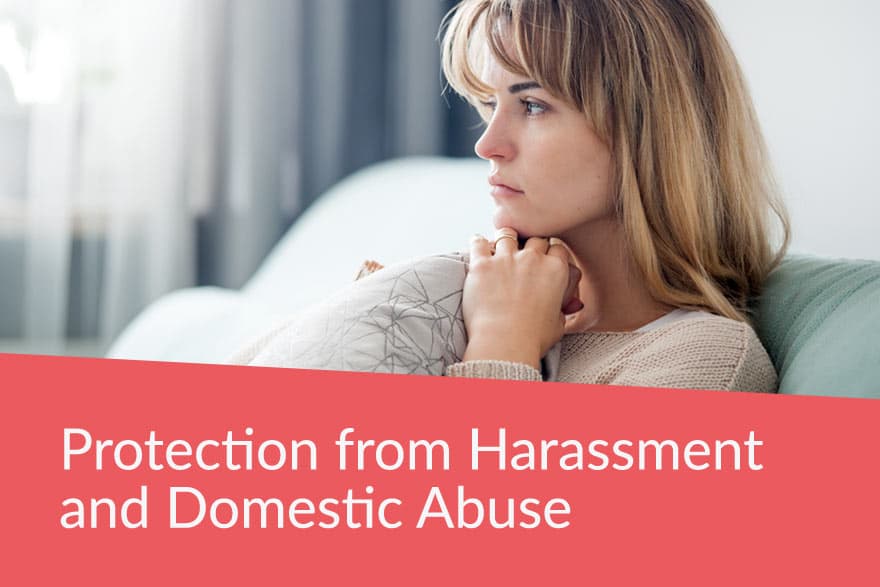Expert legal help with child contact and residence
Your Child
Many separated parents are able to reach an agreement about where their child will live and how often the child will spend time with each parent. However, if this is in dispute, the Scottish courts have powers to make orders about children. Generally the court can be asked to make two types of order:
- Residence: this is the legal term which describes where, and with whom, a child under the age of 16 lives. This usually means where the child spends the majority of nights per week/fortnight. It is possible for parents to share residence of a child if the child spends an equal number of nights with each parent, e.g. 7 nights each out of 14.
- Contact: this is the legal term used for when someone the child doesn’t live with is given a right to interact with that child. There are various types of contact:
- Indirect contact: by letter or phone when the person does not have face to face contact with the child.
- Non-residential contact: does not include overnight stays. This might take place at the person’s home, at an agreed location like a park or leisure centre, or even in a contact centre.
- Residential contact: this is overnight contact where the child will sleep at the home of the person with contact.
It is not uncommon for the non-resident parent to have a mixture of contact, for example, by phone/Zoom calls at a designated time, dinner once a week, overnight every second weekend etc. The age of the child very much determines the nature of contact. Generally contact is likely to increase as a child grows older.
Who can apply to the court for an order?
Anyone who has an interest in the welfare of the child can seek an order regarding a child. That might be one of the child’s parents, a grandparent, sibling or other family members. Orders can even be sought by non-relatives if they are able to demonstrate a close connection to the child, for example a partner of the child’s deceased parent.
Before the court will make a decision on whether to grant any order, the court must be satisfied making an order is necessary and also better for the child if an order is made than no order at all. The court holds the welfare of the child as the paramount consideration. The court will also take the child’s views into account, where appropriate. The court considers that any child who is of school age should be given an opportunity to express a view and will then decide what weight, if any, should be attached to the child’s view. The default mechanism for obtaining the child’s view is by using an F9 form. This is sent to the child’s home unless the court is persuaded that sending it somewhere else, like a school or relative’s home would be better for the child. The court can also use independent experienced solicitors to obtain a child’s views by instructing them during court proceedings.
Costs and Fixed Fees
We offer all new clients a free 10 minute telephone call with one of our solicitors to discuss how we can help.
Your first meeting with one of our experienced family law solicitors is then set at a fixed fee of £320+VAT.
We follow up with considered options and detailed costs on the most appropriate and cost-effective way to proceed.
Shared Care Part 1
Shared Care Part 2
Frequently asked questions to consider…

Wise words from Beverley
“Whatever you agree about how best your children are cared for, it’s important to understand that this may not always be the case. Always be open to the idea that relationships, opportunities and circumstances can change and that what was decided, even by a Court, at a certain moment in time may not necessarily be in the child’s best interests until they are sixteen years of age.”
We can help you right now
Our commitment to provide you with the best possible advice includes a free initial phone call with one of our experts. This allows us to fully prepare for your first meeting which we always offer at a fixed fee rate.
We understand that seeking Family Law advice can be daunting. However, when you get in touch with us, you will find a tailored, highly personal and reassuring approach which will empower you to take back control.
Recent Case Studies, Articles and Information
Are Cohabitation Agreements Legally Binding?
Cohabitation agreements act as an insurance policy for unmarried couples living together or those who aren’t in a civil partnership, helping to clarify rights, responsibilities, and financial arrangements. A question [...]
What rights do Grandparents have in Scotland?
Grandparents play a hugely important role in the lives of many children and they are often at the heart of the family unit. When parents decide to separate, it comes [...]
Co-Parents urged to make Christmas arrangements amid 8-week warning
Head of Family Law Beverley Johnson was recently interviewed about co-parenting arrangements over Christmas and her advice was featured in a number of newspapers including The The Herald, Glasgow Times [...]
Tips for celebrating Halloween as separated parents
If you have young children, they are likely to be excited at the prospect of dressing up, trick-or-treating, and carving pumpkins this Halloween. However, for divorced or separated parents, this [...]
Everything you need to know about father’s rights and responsibilities in Scotland
What are parental rights and responsibilities? Parental rights and responsibilities allow parents to make decisions about their child’s life. This includes the child’s name, the child’s religion, where the child [...]
What happens in a family court child welfare hearing?
Key takeaways: In any case where a decision needs to be made by the court about a child, the court is likely to fix a hearing called a Child Welfare [...]
Edinburgh Family Law firm launches Scotland’s first Divorce and Separation digital Wellbeing hub on Mental Health Awareness Week
Edinburgh Family Law firm Johnson Legal Family Law is giving those going through a relationship breakdown access to important wellbeing support with the launch of a new digital Divorce and [...]


















